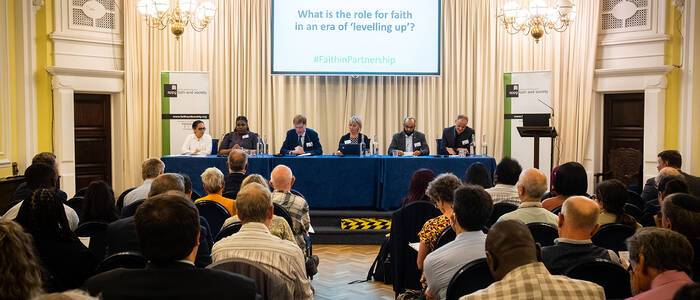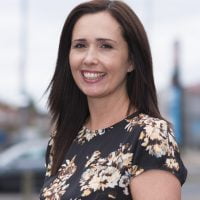Reflecting on#FaithinPartnership Week

As we start the New Year, we are taking time to reflect upon some of our work in 2022. September was a particularly exciting month for the FaithAction team, as we launched #FaithinPartnership Week – a new initiative bringing together faith leaders, community representatives and key figures and organisations from the public sector.
During the week, three reports were launched, focusing on the intersection of faith and public services.
Keeping the Faith 2.0 looks at the extent to which COVID-19 has changed the nature of partnership working between faith groups and local authorities, and what this means for post-pandemic Britain. The launch event featured an exciting line-up of speakers including Paul Scully MP, the then Minister of State for Local Government, Faith and Communities, Sir Stephen Timms MP, and a variety of faith representatives including Dr Russell Rook of the GoodFaith Partnership, Laura Marks of Mitzvah Day and Nisa Nashim, Dr Jagbir Jhutti-Johal from University of Birmingham, Shermara Fletcher of Churches Together in England and Dr Omer Moghraby from the British Islamic Medical Association.
Discussion included the early preparedness of faith groups to support people during winter, the importance of voices of women in discussions, the need for faith groups to be trusted and the importance of tailoring health services to get better outcomes, and the need for all local authorities to have open discussions with faith groups.
Attendees also raised various issues during the Q&A session, including the role of faith groups in social prescribing, how to support faith groups in their community work, religious literacy and increasing dialogue with the private sector.
We received excellent feedback from attendees at the launch, and several faith groups are preparing responses to the report:
It was a great opportunity to learn a lot …. The structure of the afternoon kept information and ideas flowing without being overwhelming, which is a very hard balance to strike
I found it really interesting and valuable, it’s left me thinking a lot about what else we need to do to bring faith-based organisations into our work
We appreciate the clear time and effort put into highlighting the importance of faith communities and the contributions they make to their localities. The findings of the report were fascinating, and it was heart-warming and encouraging to see examples of how these groups collaborated (and sustained this collaboration) with local authorities to inspire community spirit through the difficulties brought on by the pandemic.
You can find out more about the event here.
The Faith Covenant, developed by the APPG for Faith and Society, is designed to facilitate partnership and understanding between faith communities and local authorities. It’s a set of principles for joint working to which both parties can mutually agree.
This document is a primer for anyone (whether in a local authority or a faith organisation) interested in the Faith Covenant. It contains case studies, top tips, core principles, and first steps on the journey to signing.
This report looks specifically at how faith groups supported and partnered with NHS services during the pandemic, and what this means for the future of health and care partnerships.
Last year, we were commissioned by NHS England to research and report on the role played by faith-based organisations during the pandemic, and how this might be built upon as Integrated Care Systems develop strategies for engagement.
Our surveys, roundtables, and interviews revealed a huge amount of encouraging partnership work has happened these past two years; we believe this activity can form the foundation for a new way of operating for local health and care systems, where faith groups are valued and trusted and are a strategic part of planning for integrated care.
We are looking forward to an even bigger and better #FaithinPartnership week this year, including bespoke sessions on the latest developments in faith partnerships with public health bodies, local government, and national government – so watch out for updates as 2023 progresses!
If you would be interested in contributing a report or proposing a discussion on a particular topic, please get in touch.

About Jenny Hadgraft
Project Assistant
Before having three daughters, Jenny worked for a health insurance company. Full time mum until 2013, she went back to college and completed a degree in English Language and Communication. Afterwards, she began volunteering with the National Autistic Society, which lead to a temporary position within the Care and Support Alliance as a policy and campaigns assistant. Finally, she joined the administration team here at FaithAction as she wanted to be involved in an organisation that is focused on providing solutions for local people. Jenny provides the secretariat for one of FaithAction’s projects THIFF, the Tower Hamlets Inter Faith Forum. Jenny also supports our work with the Department of Health. In her spare time, Jenny loves spending time with family, reading and exercising.


